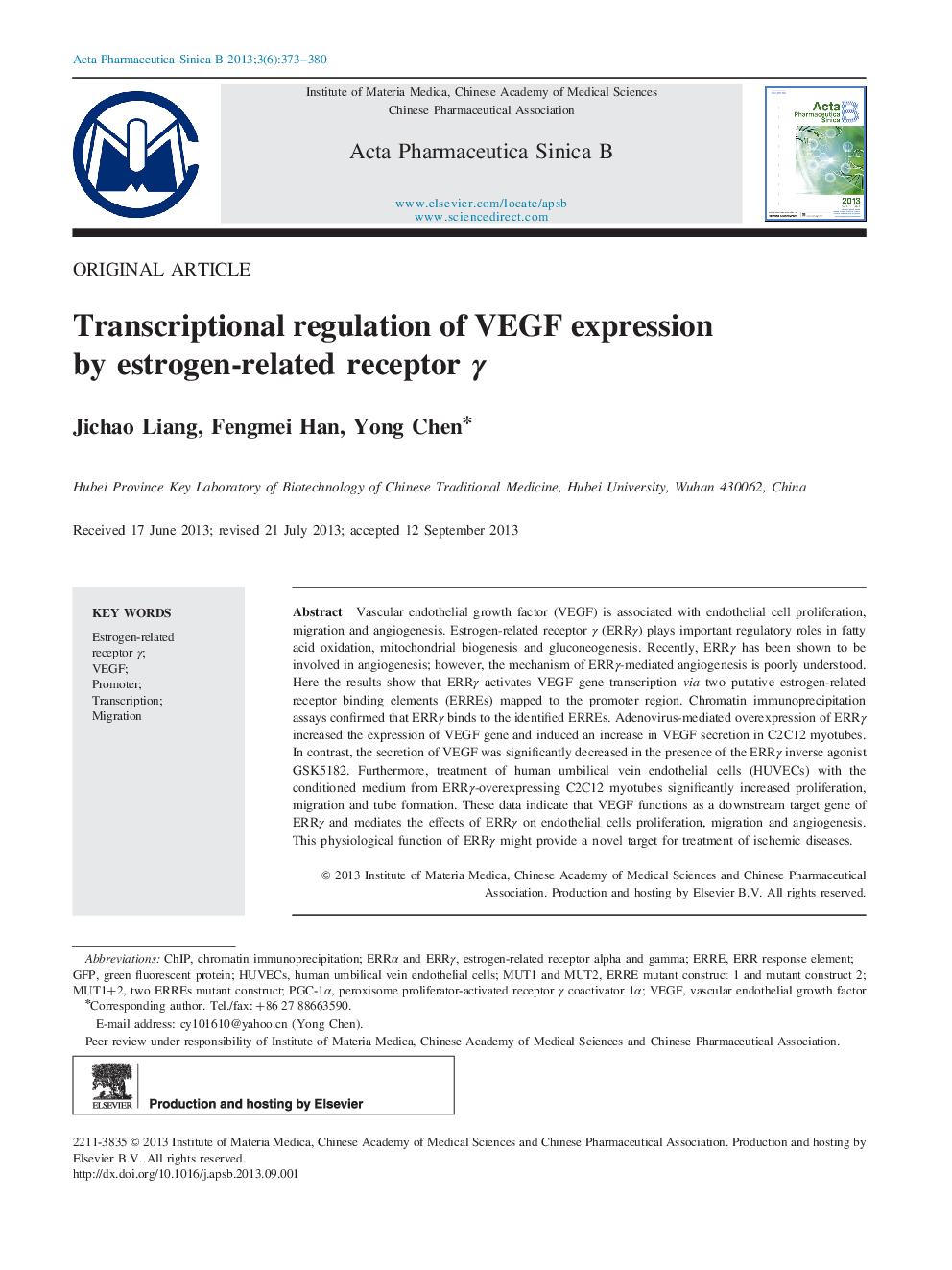| Article ID | Journal | Published Year | Pages | File Type |
|---|---|---|---|---|
| 2474516 | Acta Pharmaceutica Sinica B | 2013 | 8 Pages |
Vascular endothelial growth factor (VEGF) is associated with endothelial cell proliferation, migration and angiogenesis. Estrogen-related receptor γ (ERRγ) plays important regulatory roles in fatty acid oxidation, mitochondrial biogenesis and gluconeogenesis. Recently, ERRγ has been shown to be involved in angiogenesis; however, the mechanism of ERRγ-mediated angiogenesis is poorly understood. Here the results show that ERRγ activates VEGF gene transcription via two putative estrogen-related receptor binding elements (ERREs) mapped to the promoter region. Chromatin immunoprecipitation assays confirmed that ERRγ binds to the identified ERREs. Adenovirus-mediated overexpression of ERRγ increased the expression of VEGF gene and induced an increase in VEGF secretion in C2C12 myotubes. In contrast, the secretion of VEGF was significantly decreased in the presence of the ERRγ inverse agonist GSK5182. Furthermore, treatment of human umbilical vein endothelial cells (HUVECs) with the conditioned medium from ERRγ-overexpressing C2C12 myotubes significantly increased proliferation, migration and tube formation. These data indicate that VEGF functions as a downstream target gene of ERRγ and mediates the effects of ERRγ on endothelial cells proliferation, migration and angiogenesis. This physiological function of ERRγ might provide a novel target for treatment of ischemic diseases.
Graphical abstractVEGF functions as a downstream target gene of ERRγ and mediates the effects of ERRγ on endothelial cells proliferation, migration and angiogenesis. This physiological function of ERRγ might provide a novel target for treatment of ischemic diseases.Figure optionsDownload full-size imageDownload as PowerPoint slide
